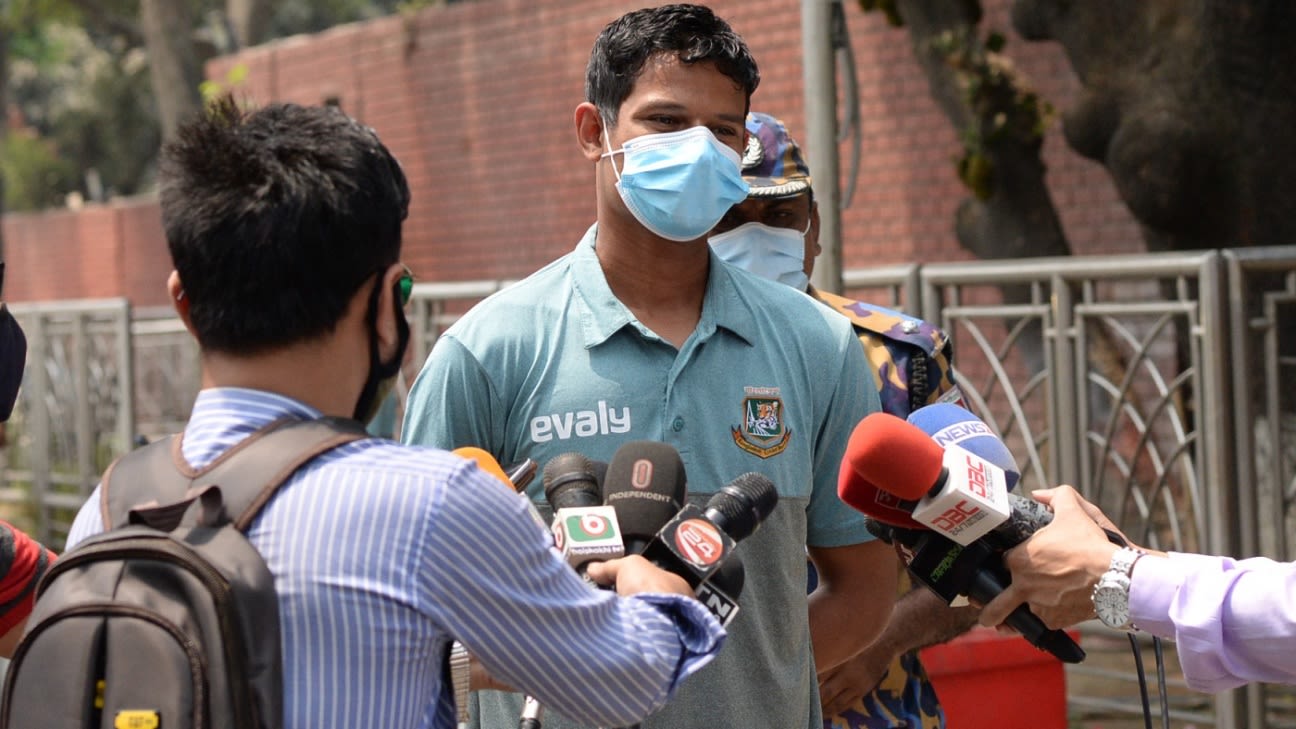
“If we could have done the training camp for 15 more days, it would have been better”
Nasum Ahmed, the left-arm spinner who made his international debut in the recently-concluded T20Is against New Zealand, believes a longer preparation camp would have helped Bangladesh fare better in the series. Ahmed, 26, was part of the squad that lost 3-0 in the T20I series, and arrived in Dhaka from Auckland on Sunday.
Ahmed admitted that Bangladesh struggled to adapt to New Zealand’s conditions. Their catching, in particular, was exposed throughout the tour as they dropped several straightforward chances in the circle and outfield. In the final T20I, Bangladesh dropped Finn Allen four times, allowing him to make a match-winning 71.
“Our fielding would have improved if we stayed there for one-and-a-half to two months,” Ahmed said. “Their sky is very clear and their weather is nothing like ours. We needed more time. If we could have done the training camp for 15 more days, it would have been better.”
After Bangladesh spent a week in room quarantine in Christchurch, they were allowed to train in small groups the following week. They then spent another week in training in Queenstown with the full team.
In the lead up to the tour, Bangladesh’s white-ball captains Tamim Iqbal and Mahmudullah had both repeatedly said that this was the team’s best preparation to any New Zealand tour, but Ahmed felt they did not have enough time to adjust to the pitches, despite following the instructions of their spin-bowling coach Daniel Vettori.
“I tried hard and tried to adjust to conditions like a professional cricketer. More than myself, I followed the coach’s tips more. He told me from the beginning how to bowl there. I applied what he said. We just couldn’t (win) do it. Not that we played badly, but we just couldn’t do it. Nothing more than that.
“Condition was a problem. I think we are behind them in terms of wickets. Our wickets are very different than theirs. Those are pace-friendly wickets but our spinners still did well.
“It will be the same for them (New Zealand) when they come to Bangladesh. They will face a similar situation.”
